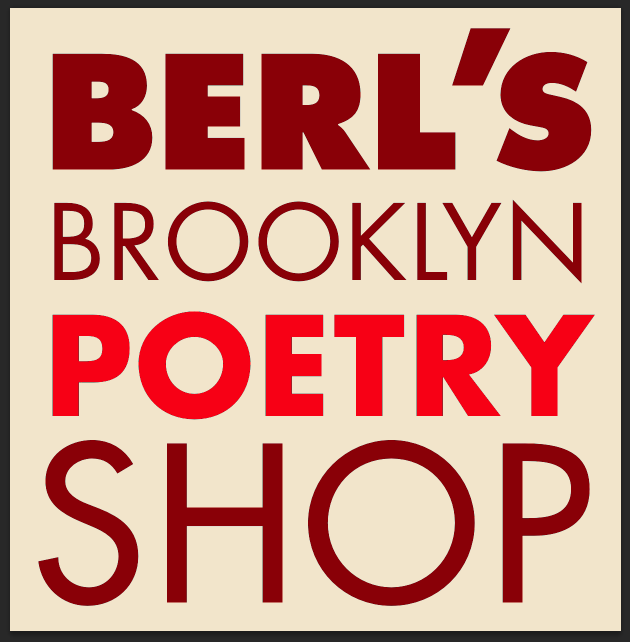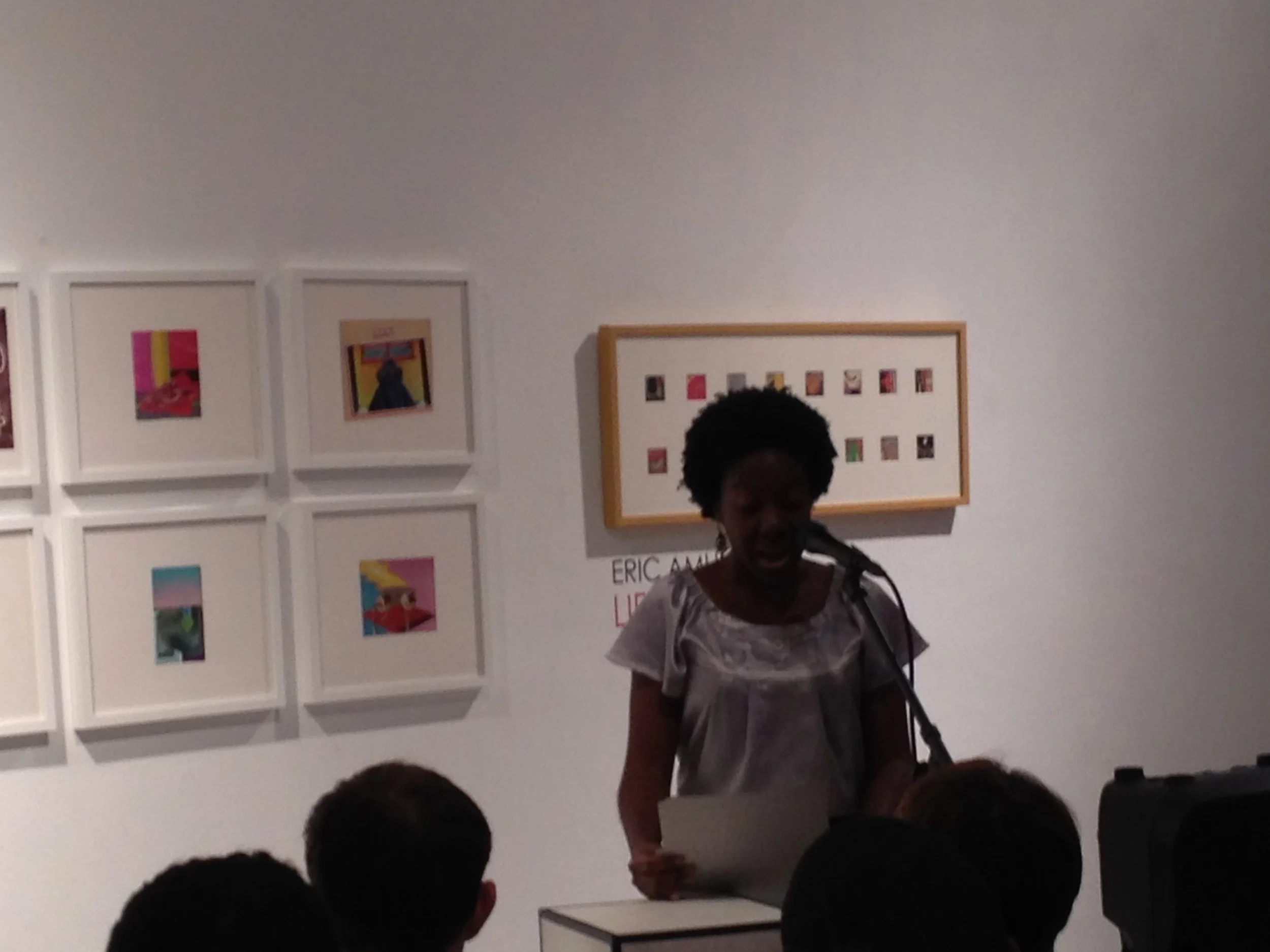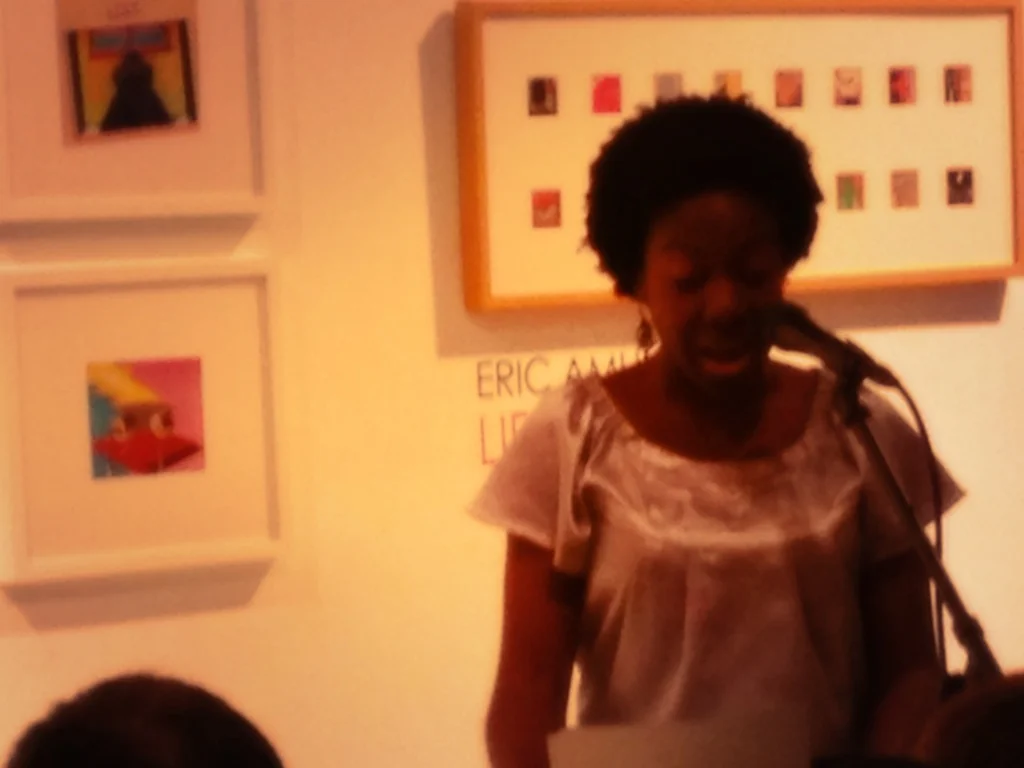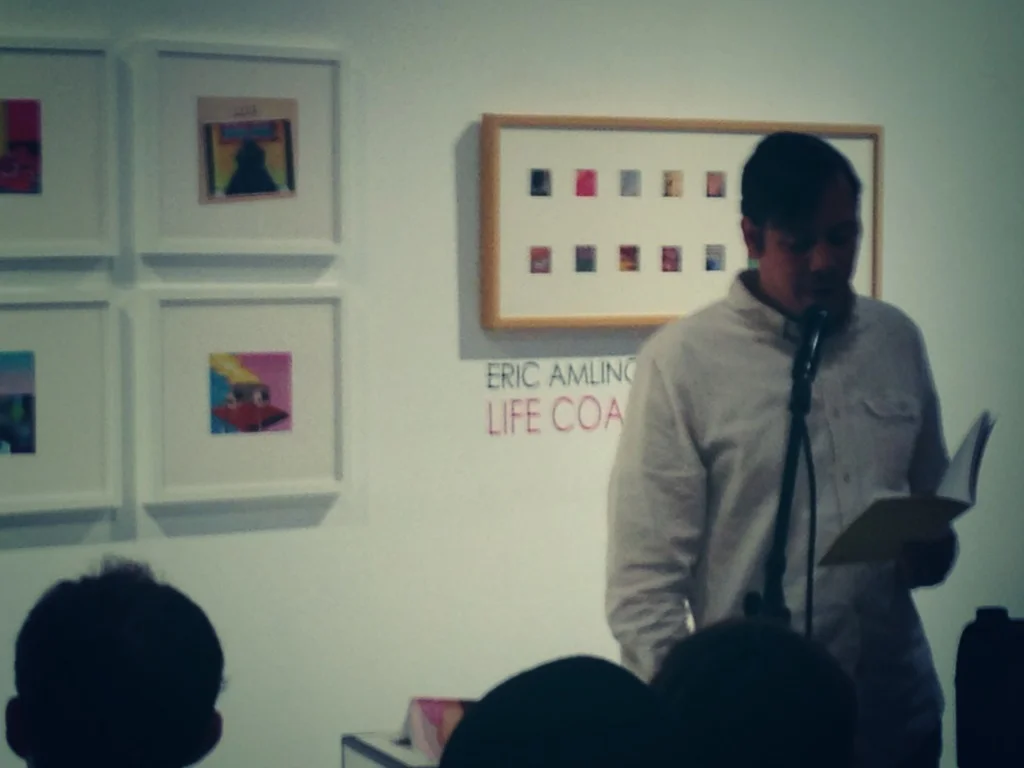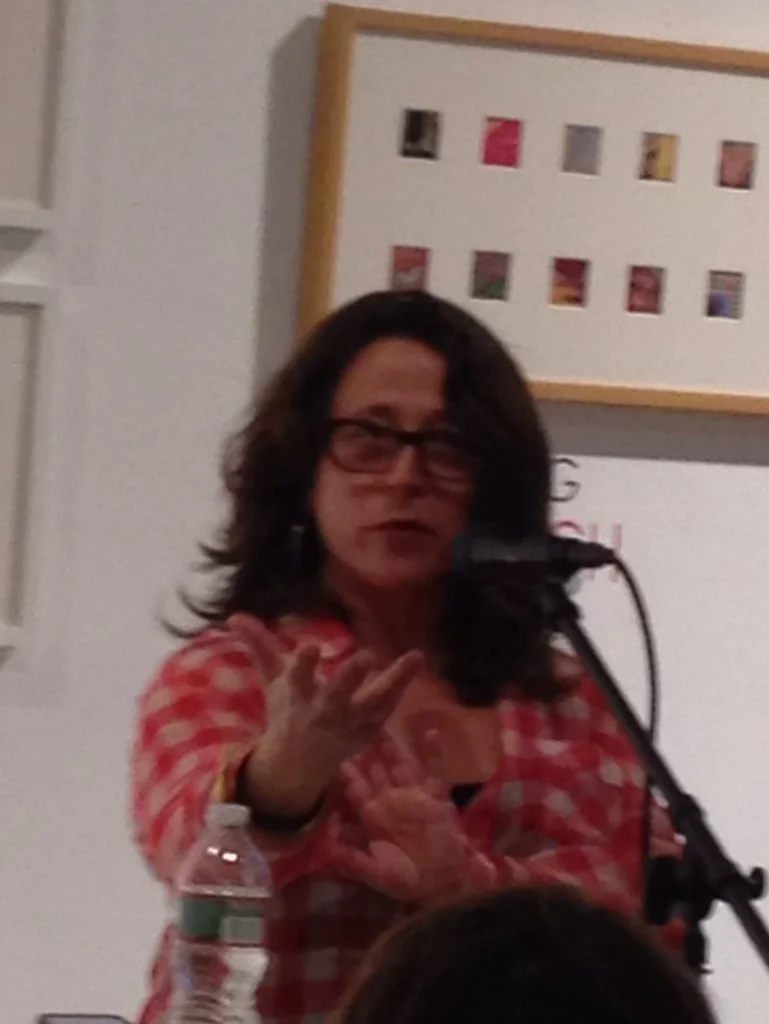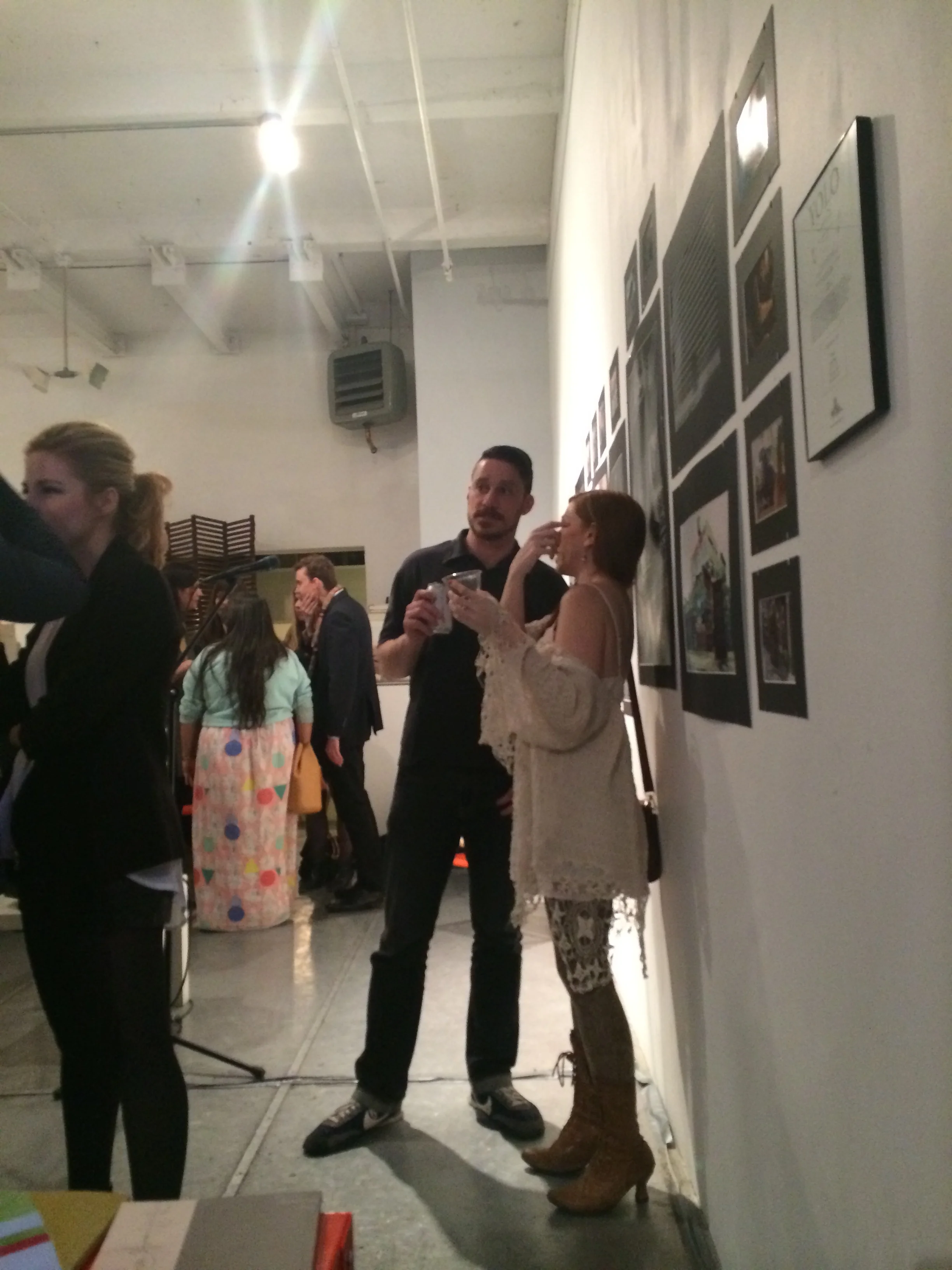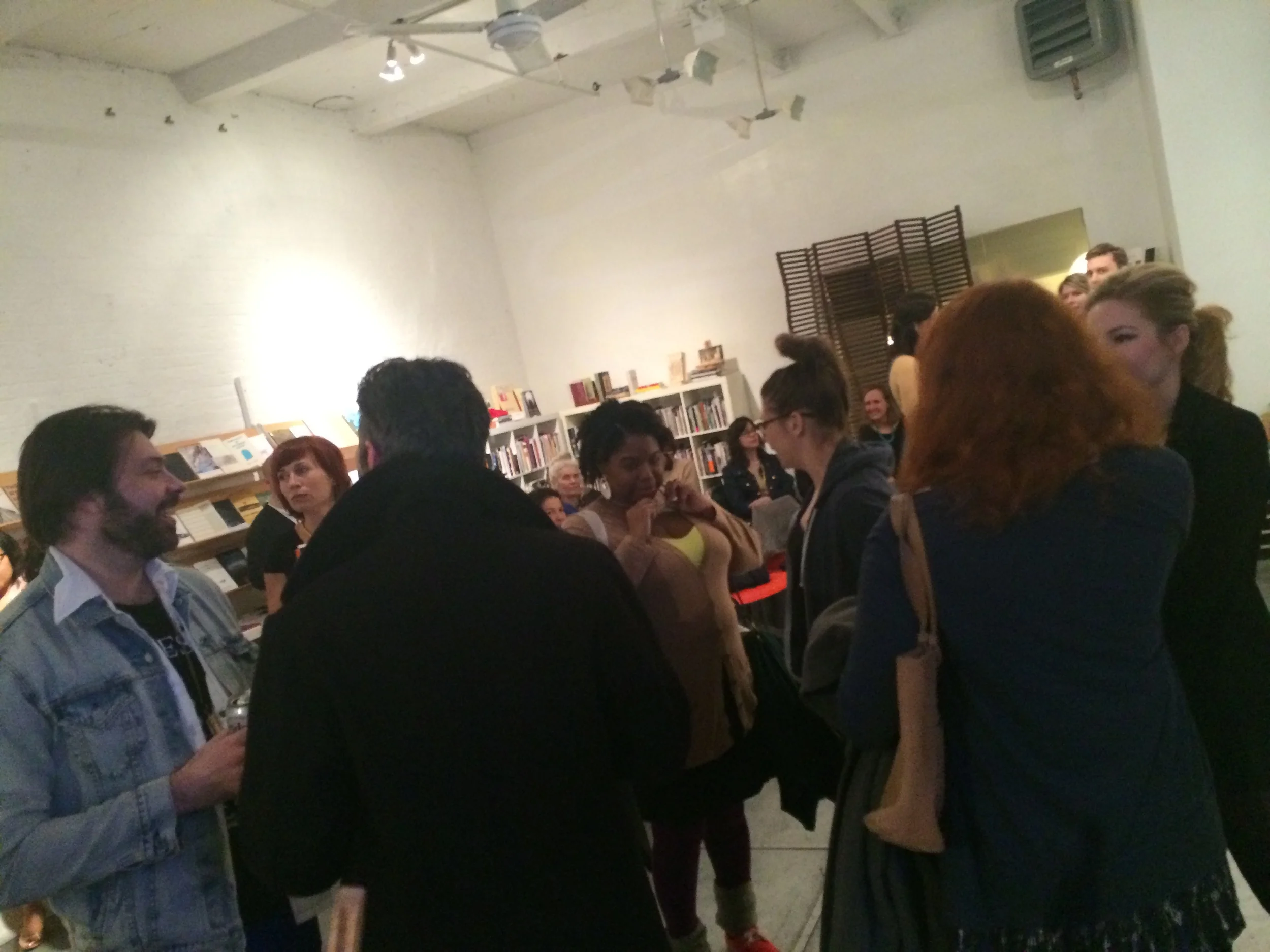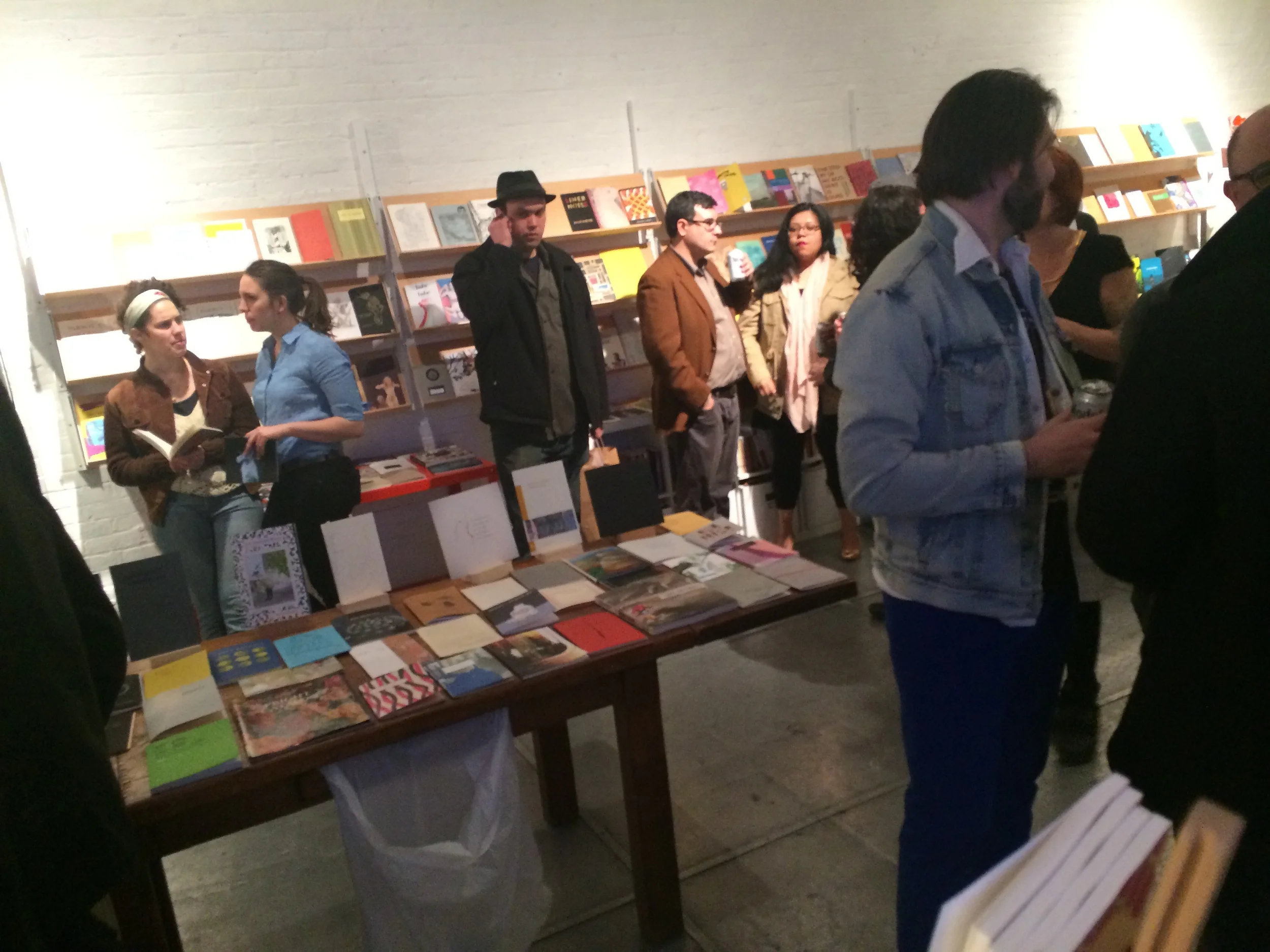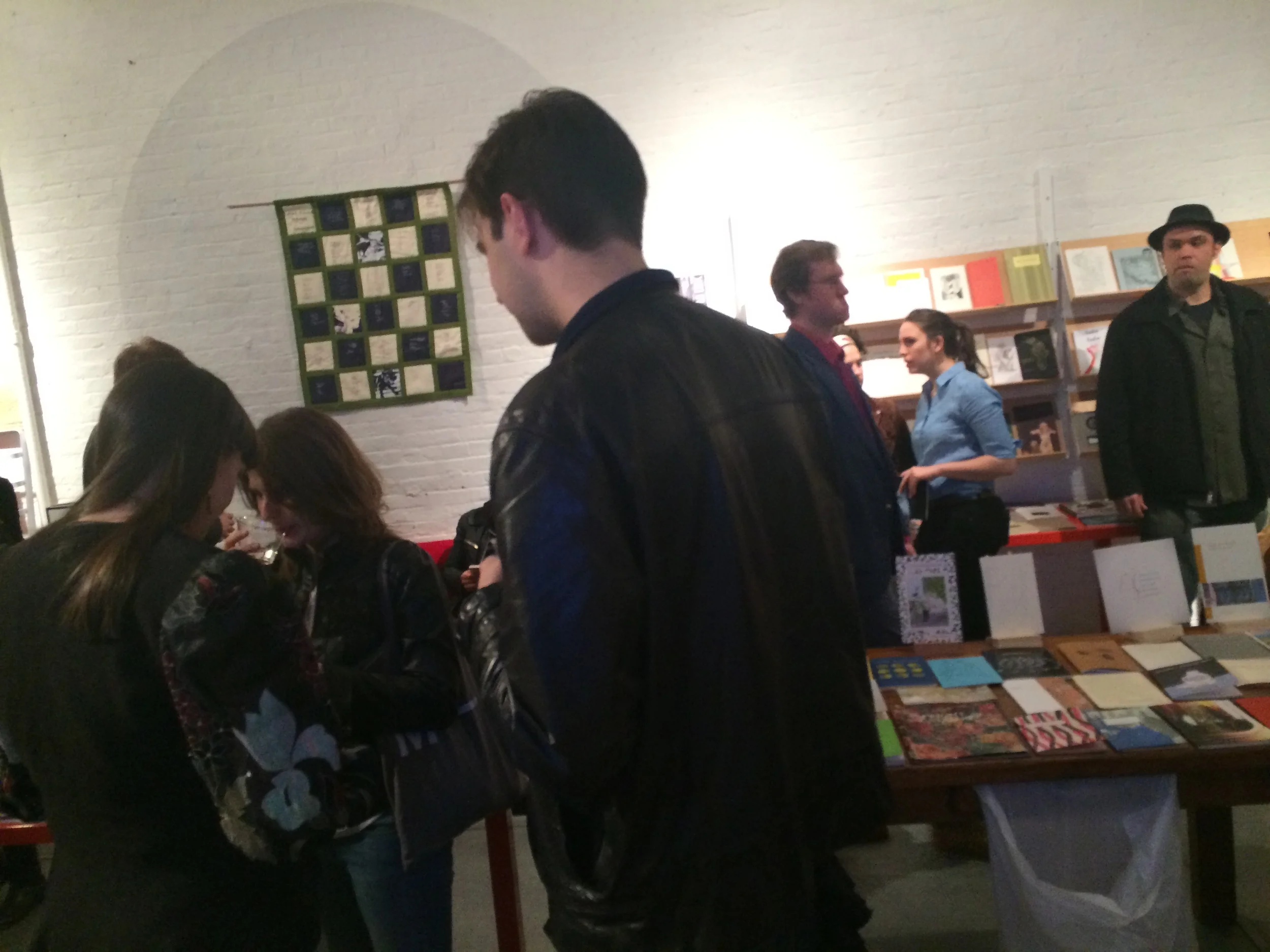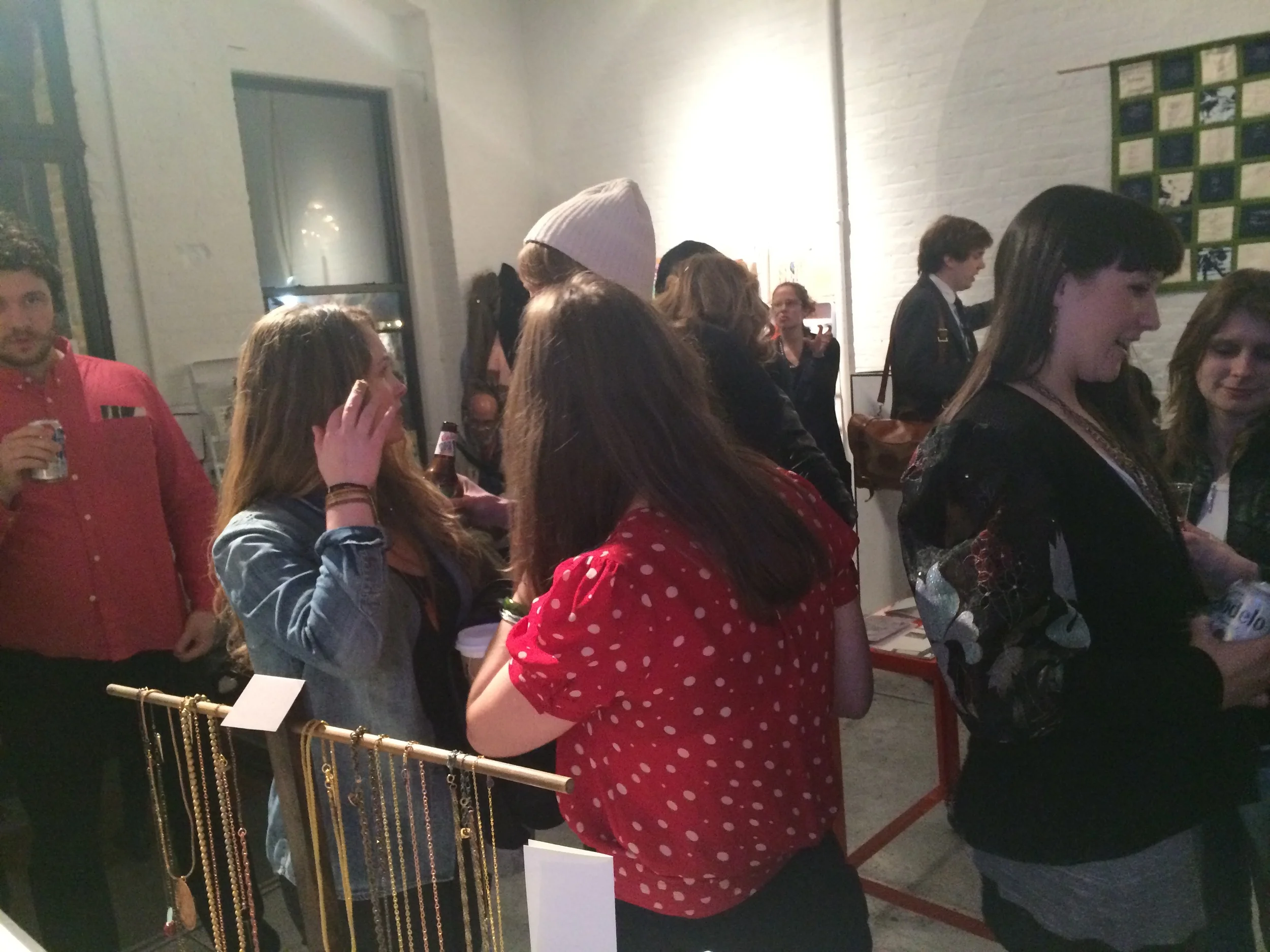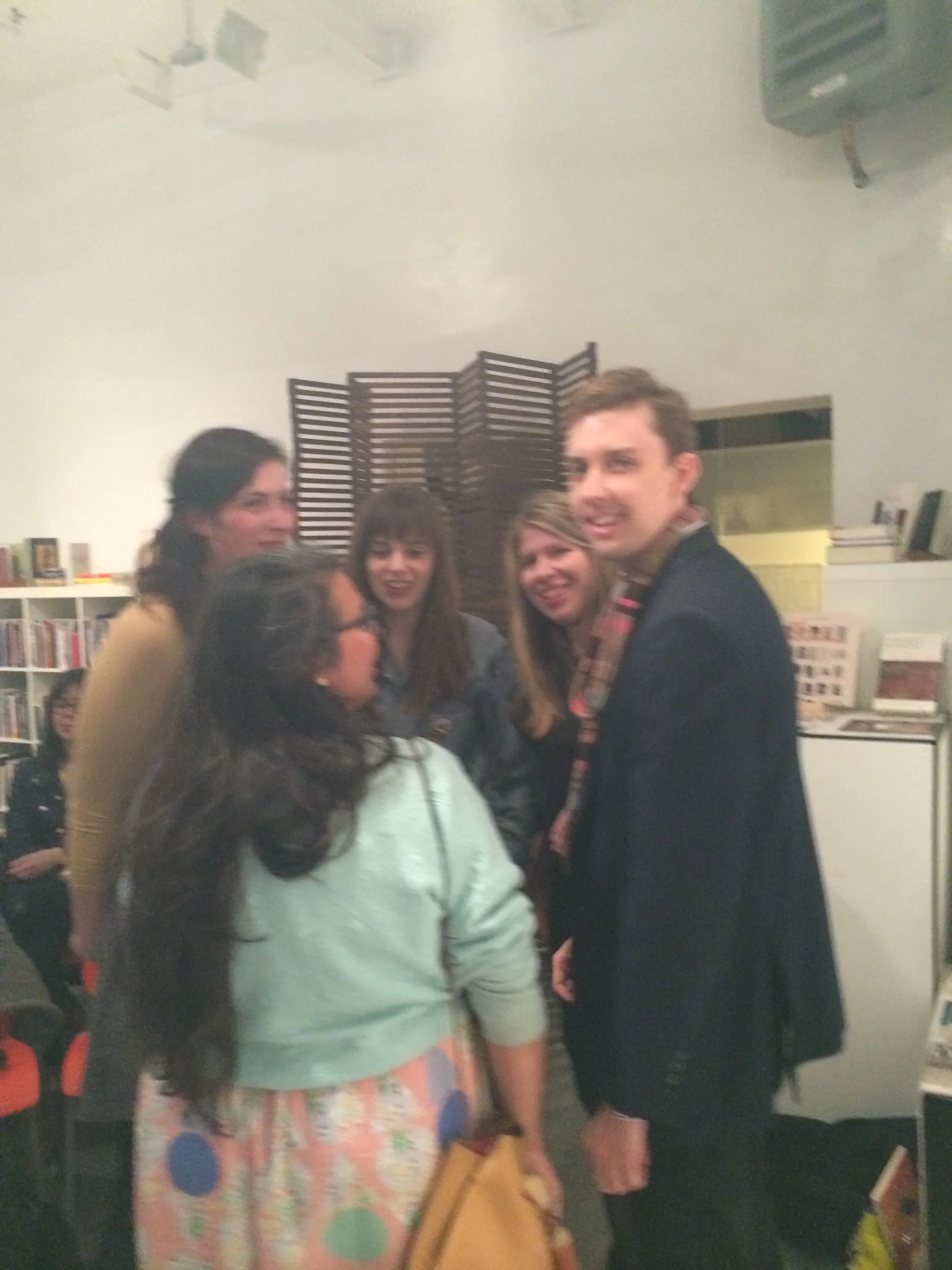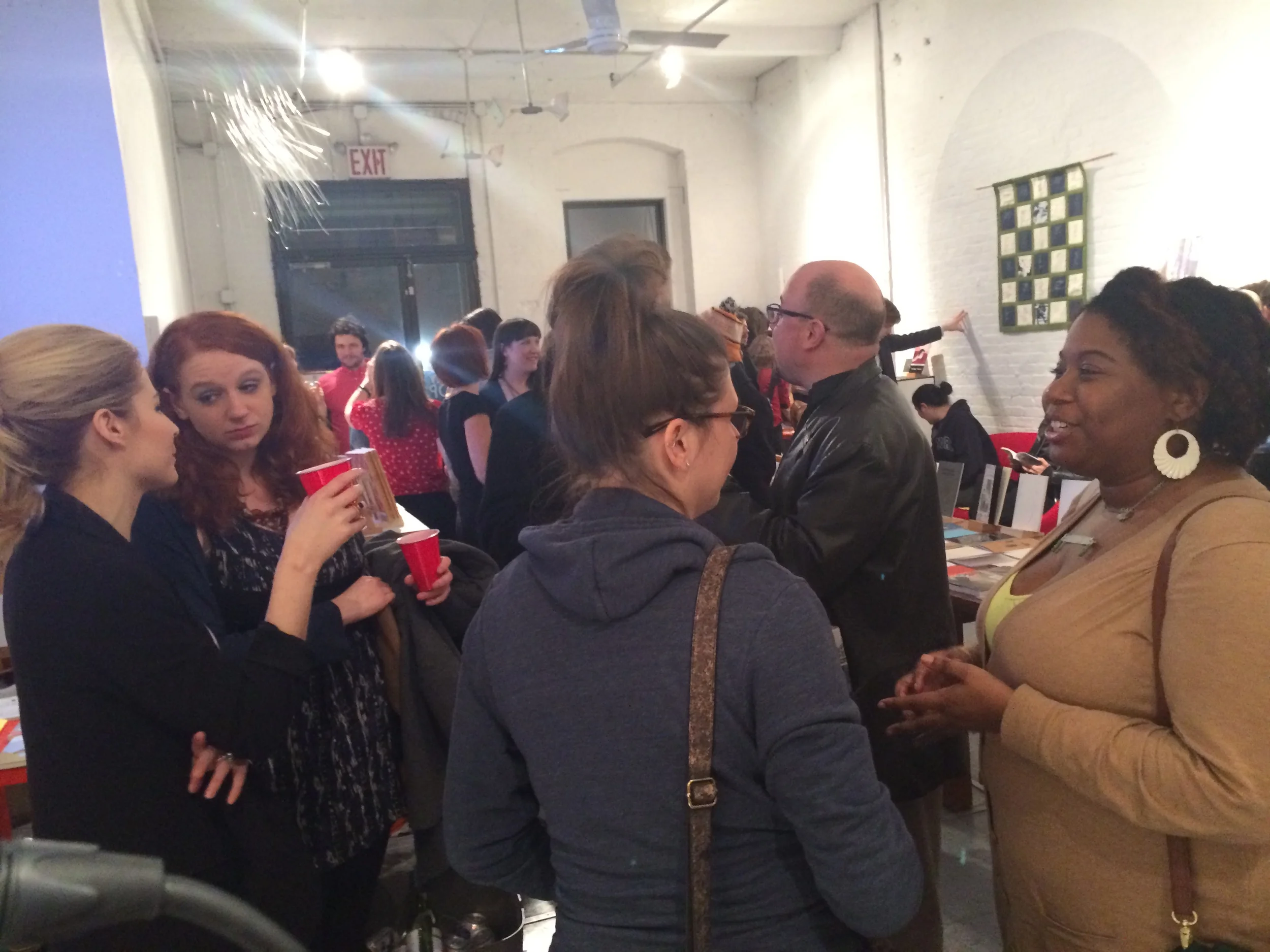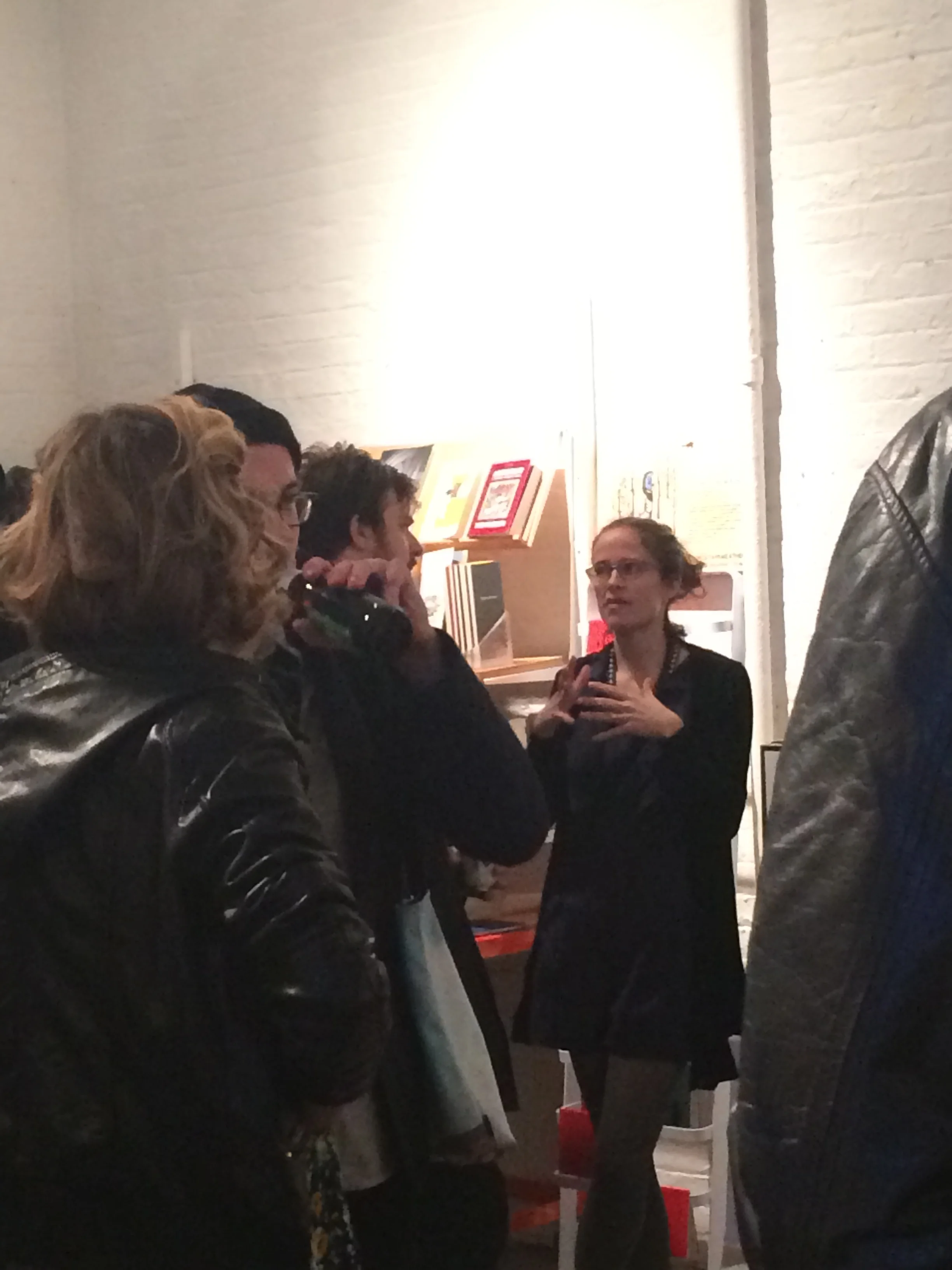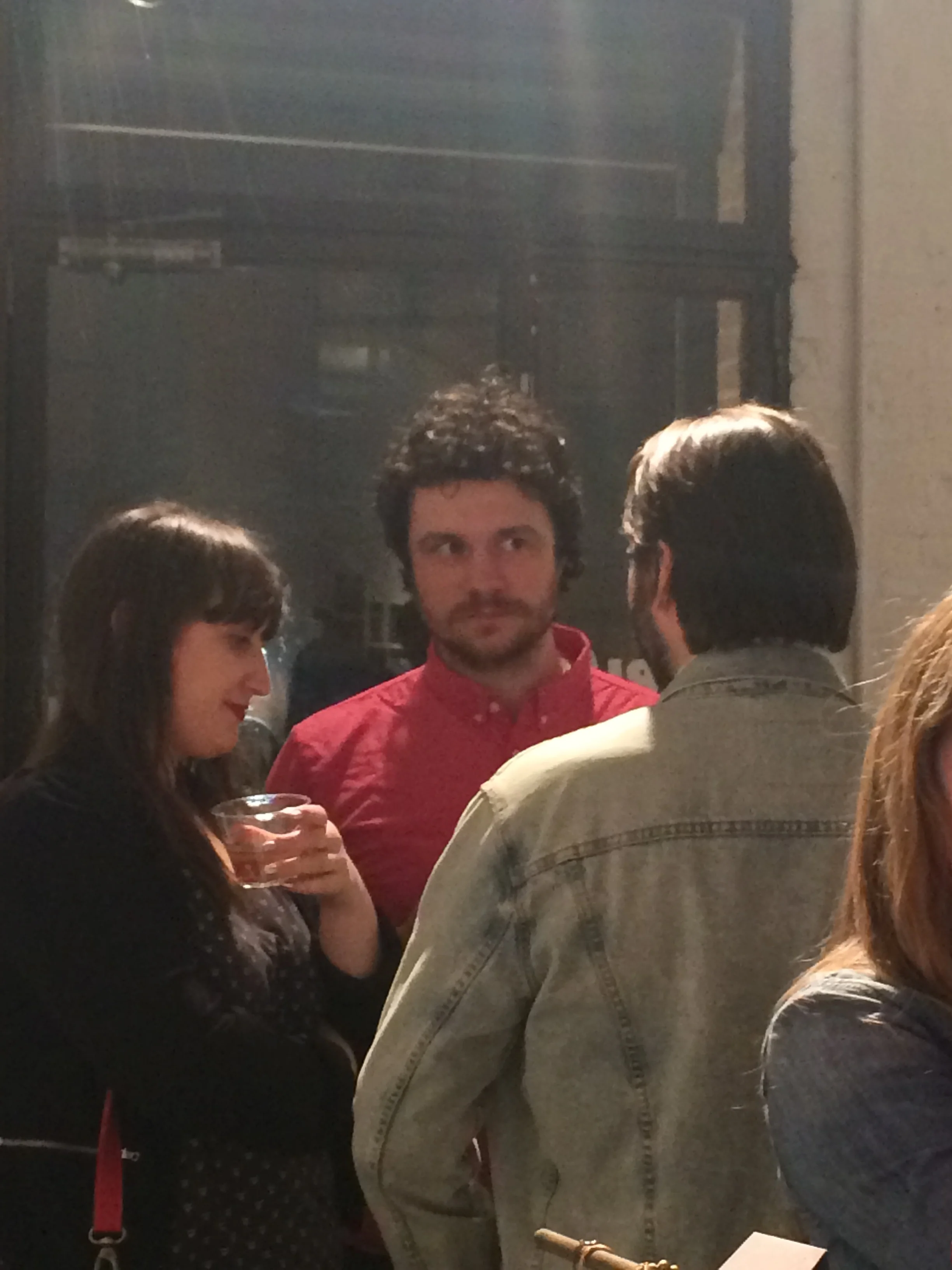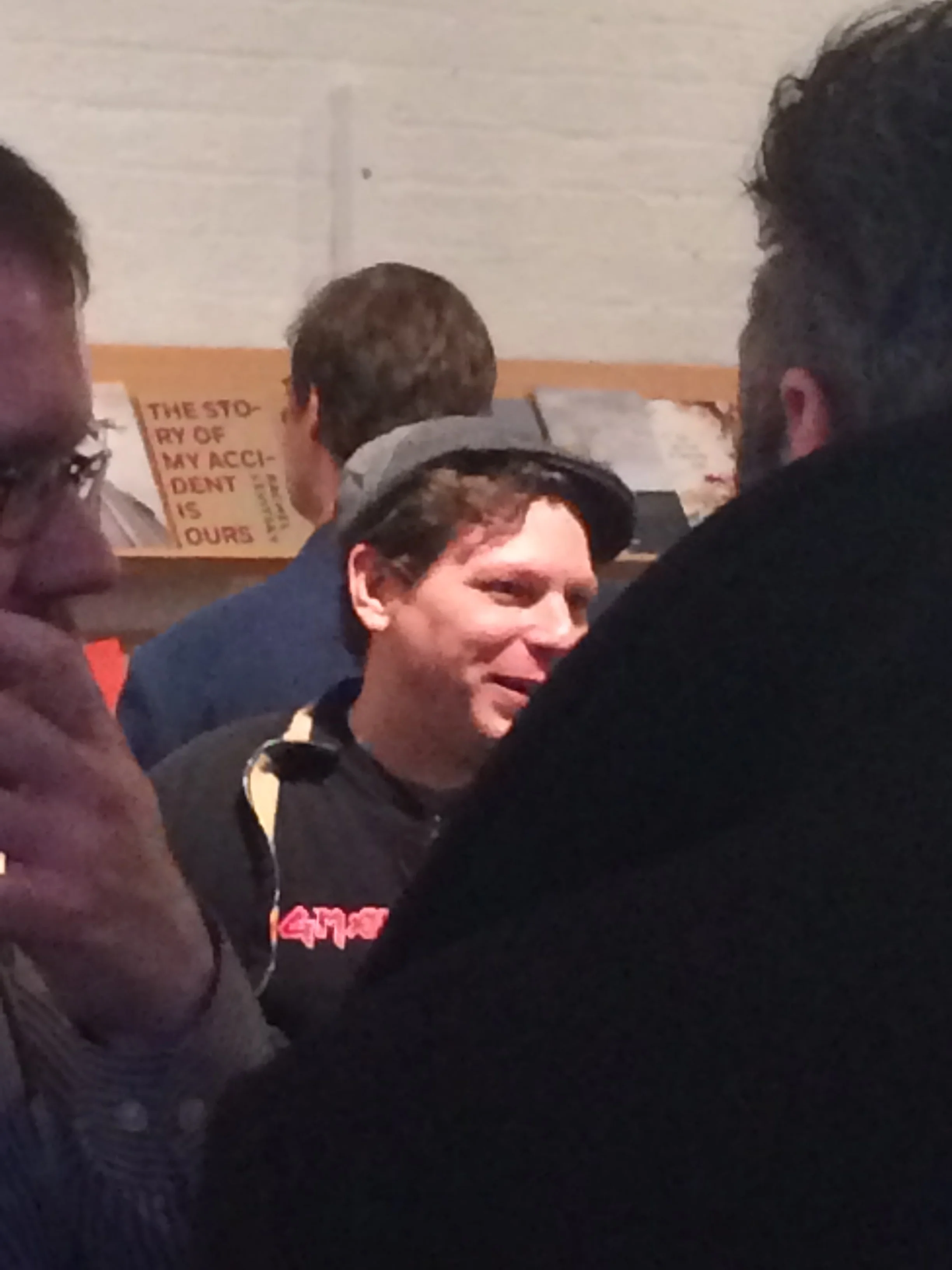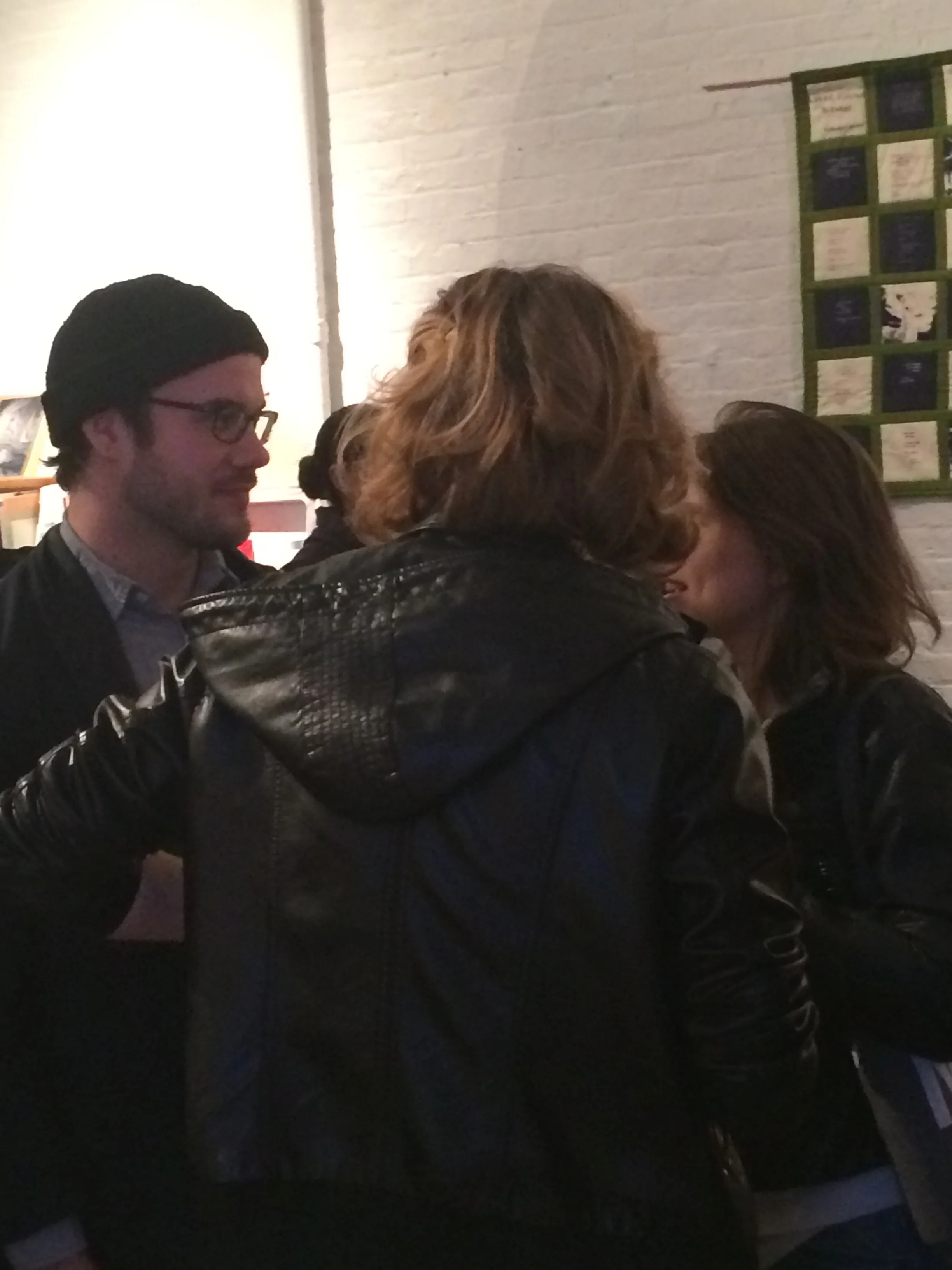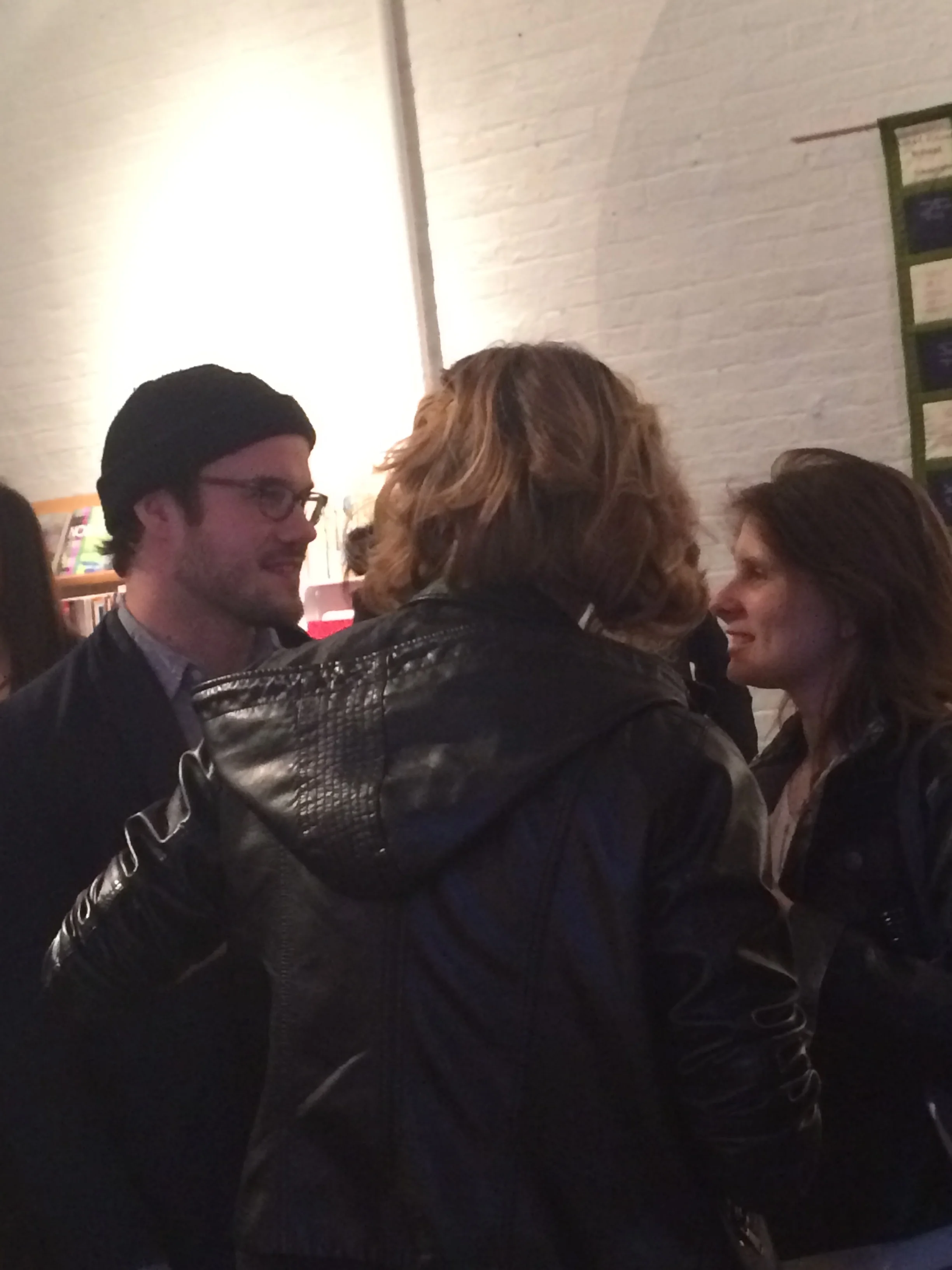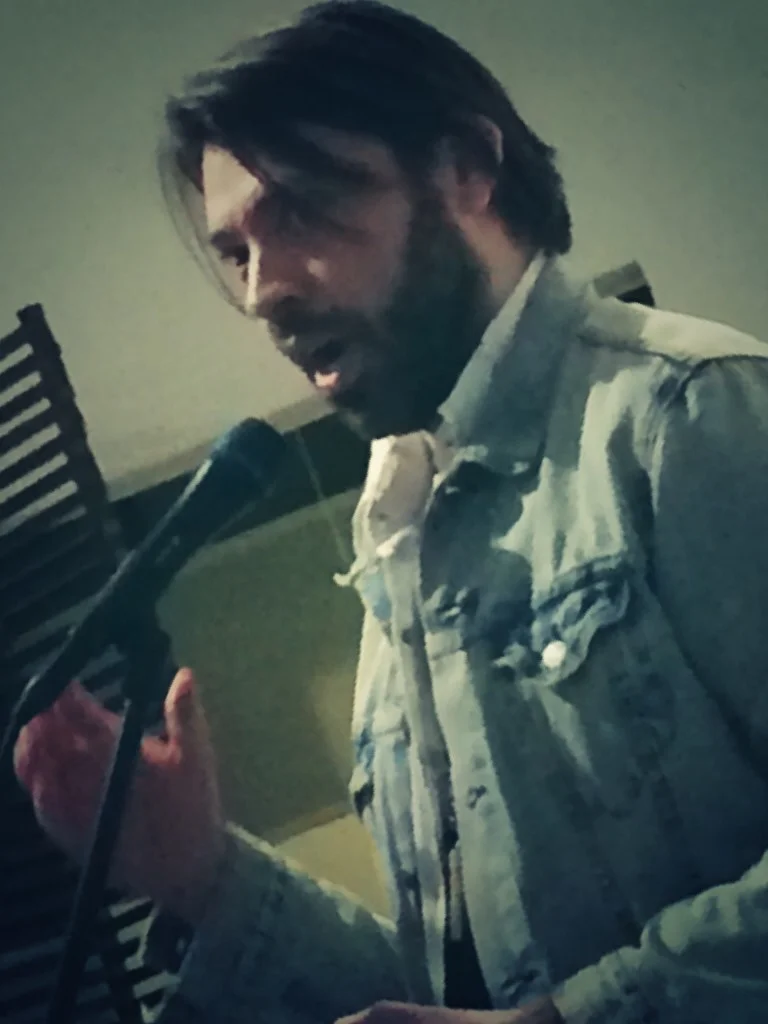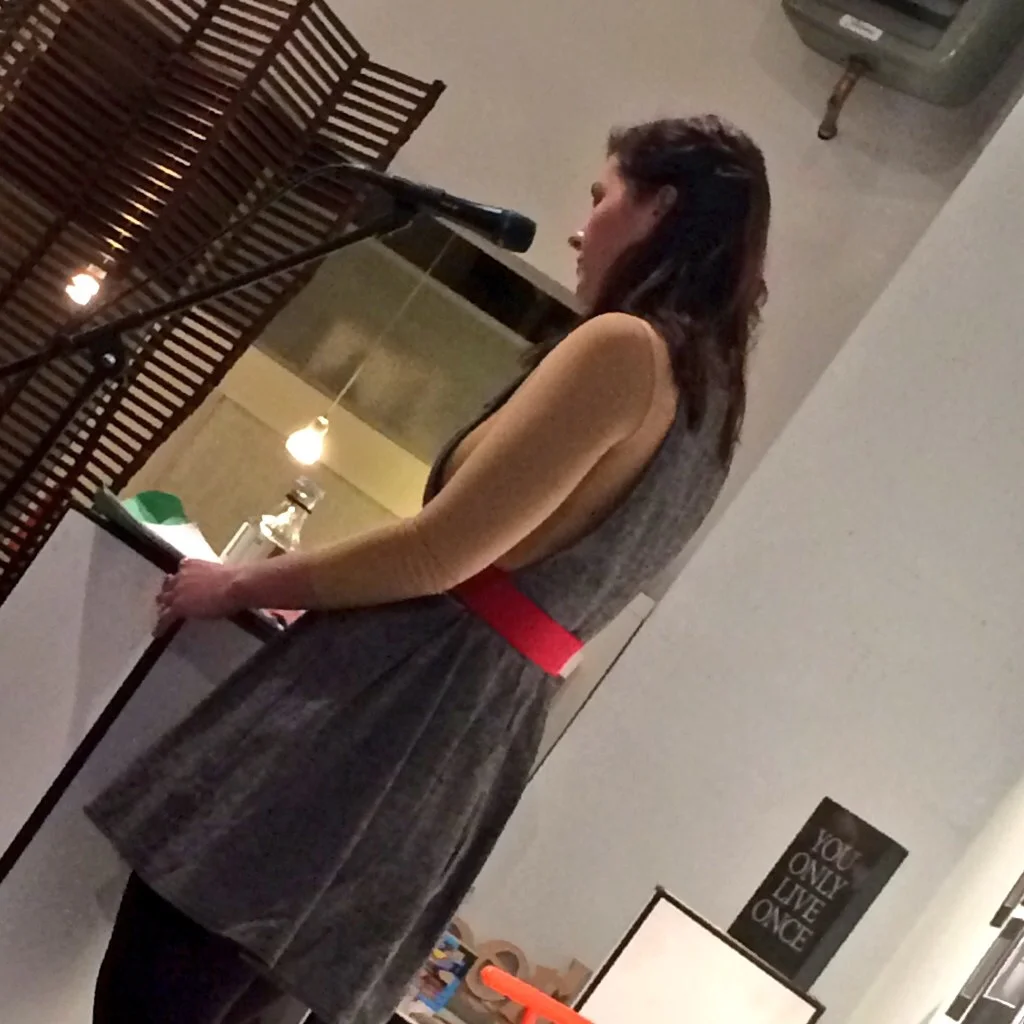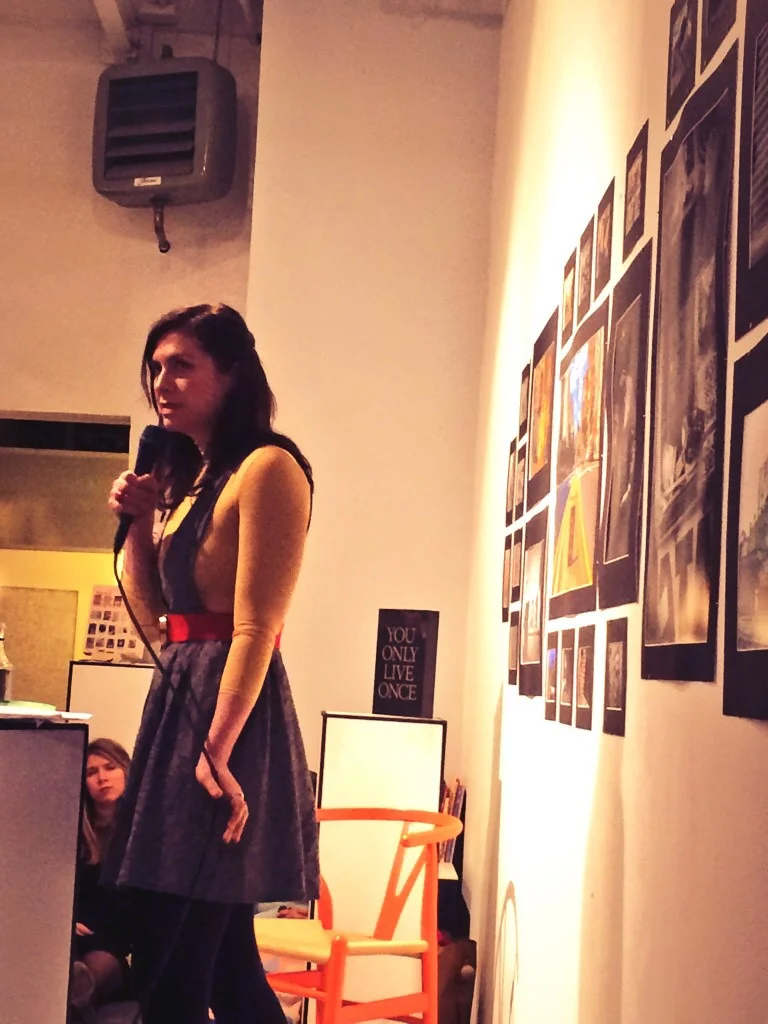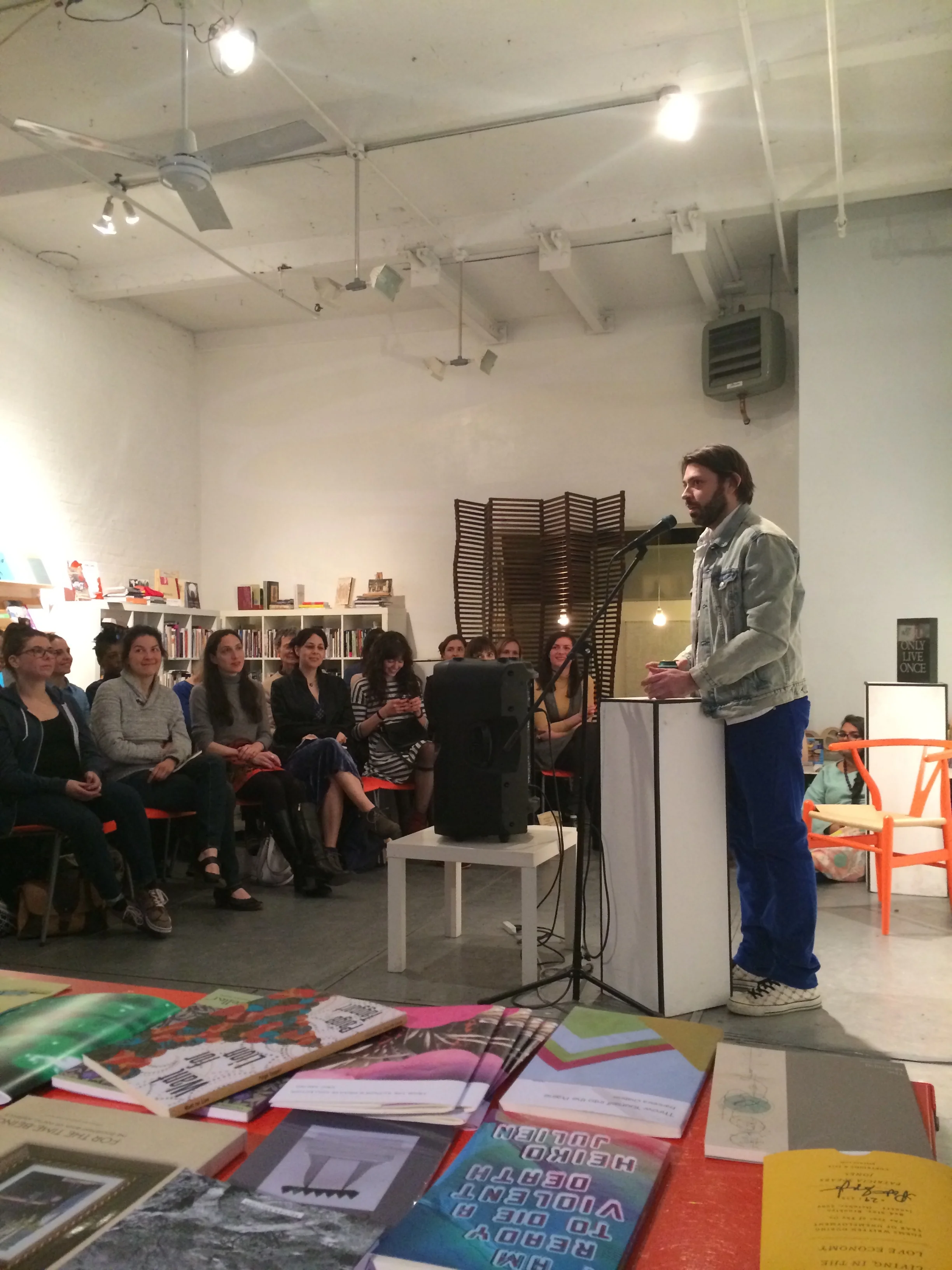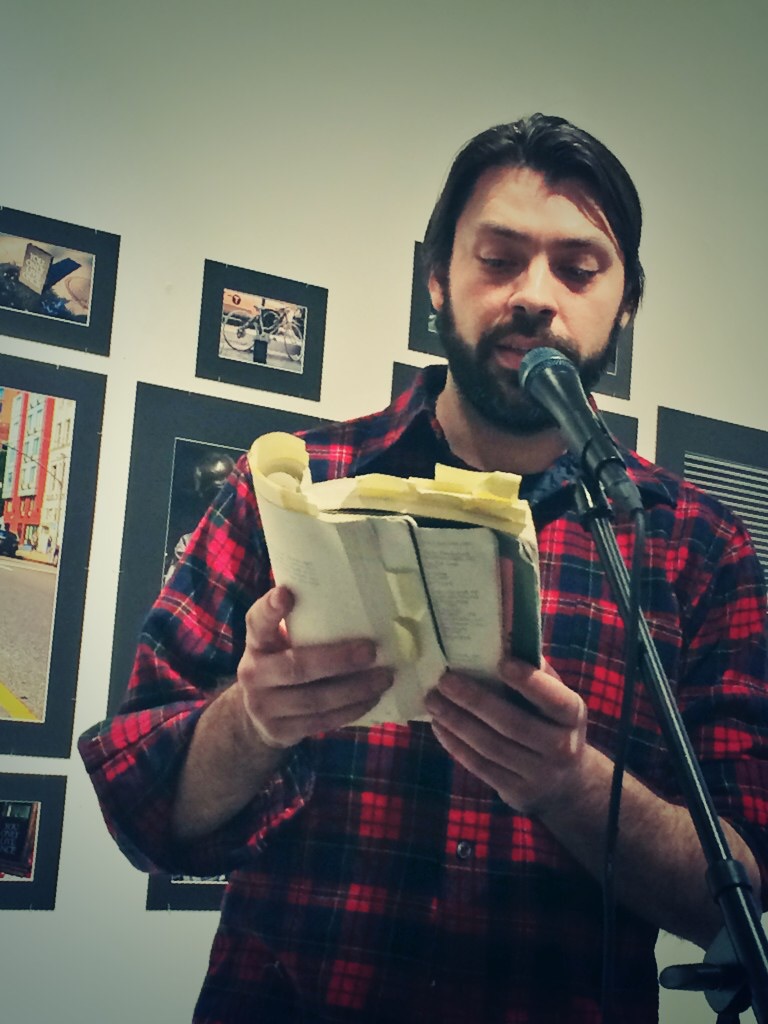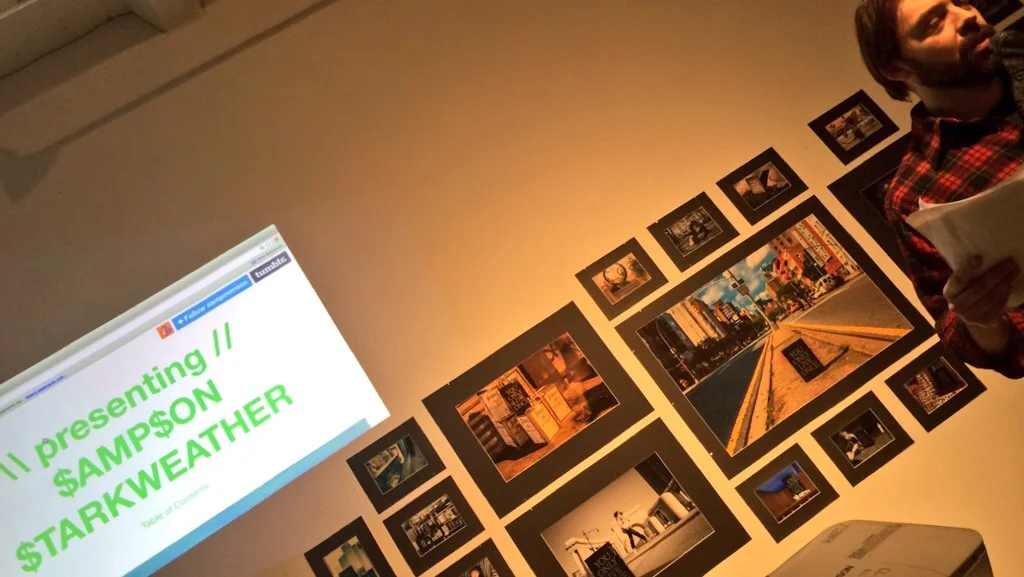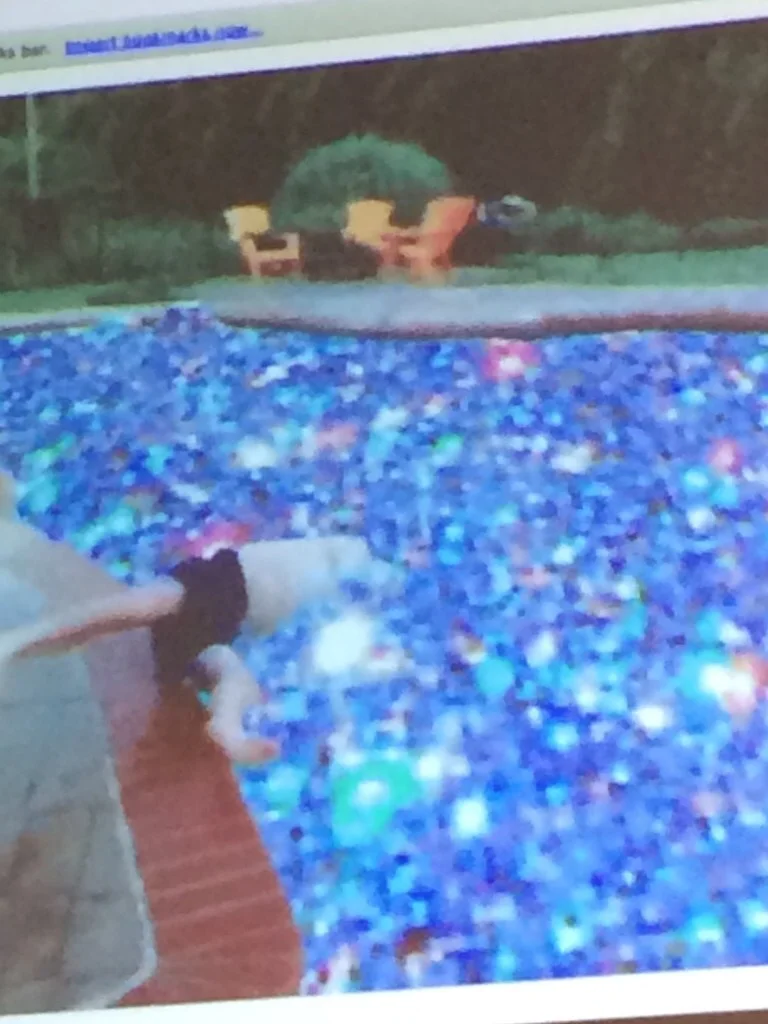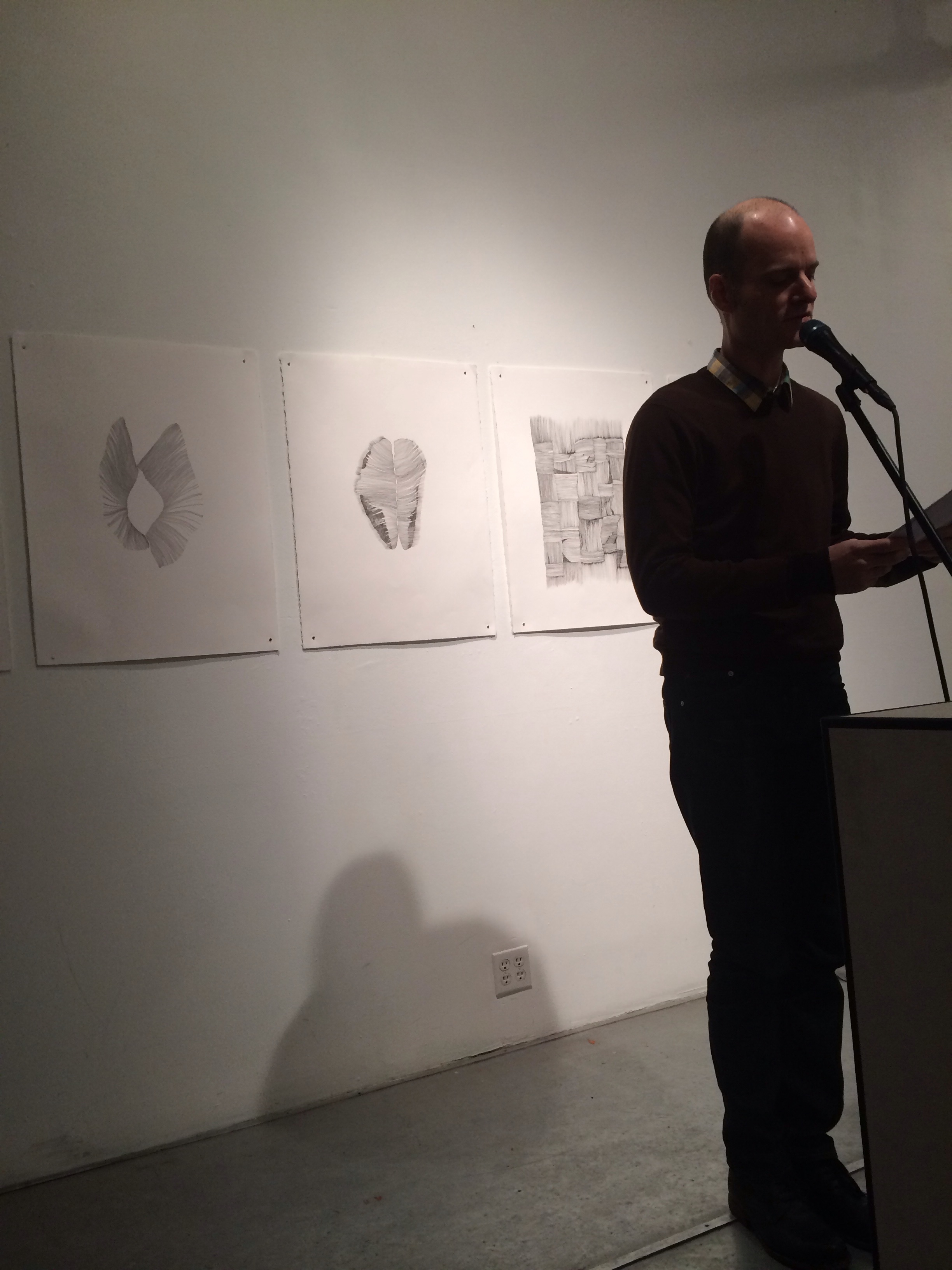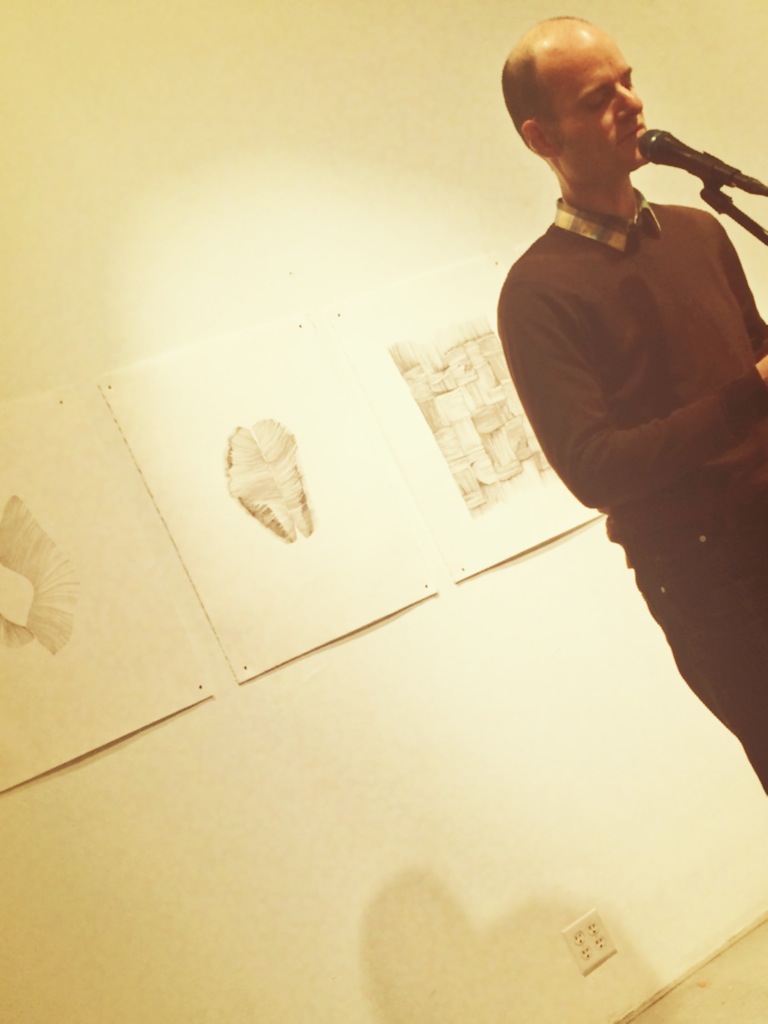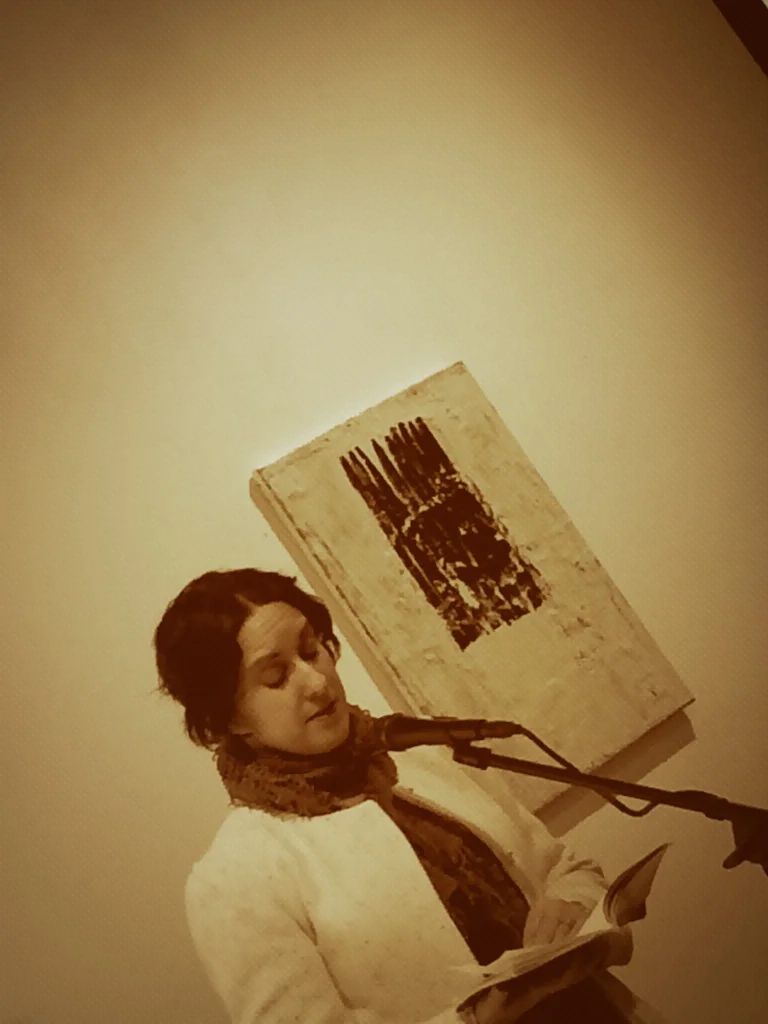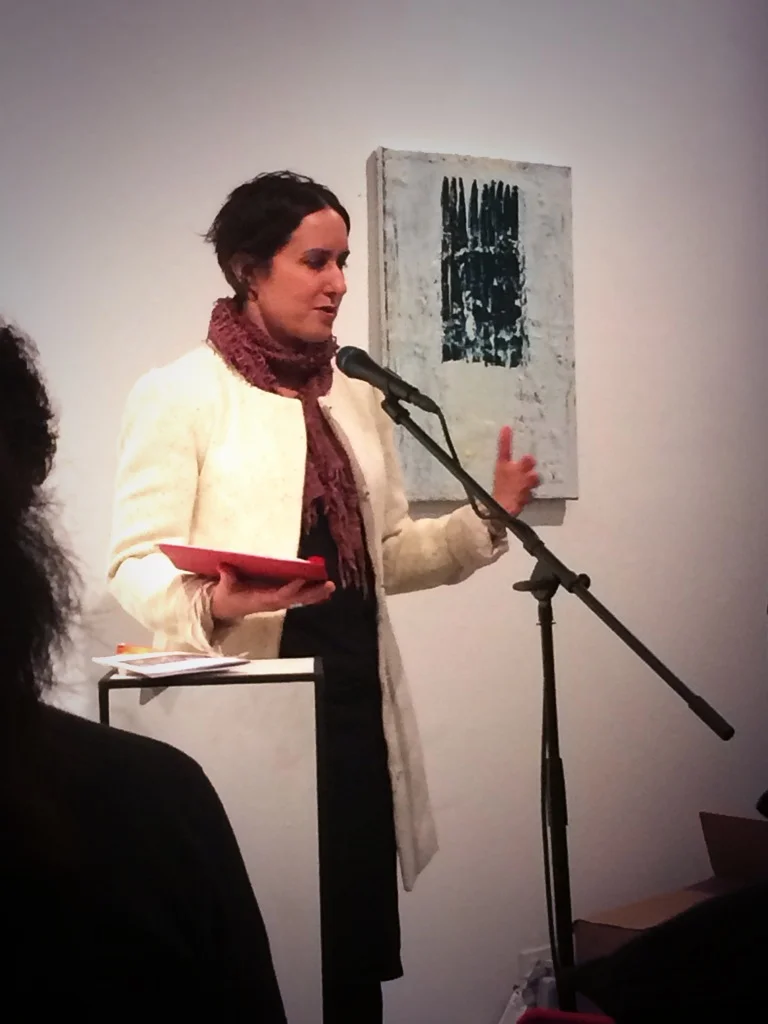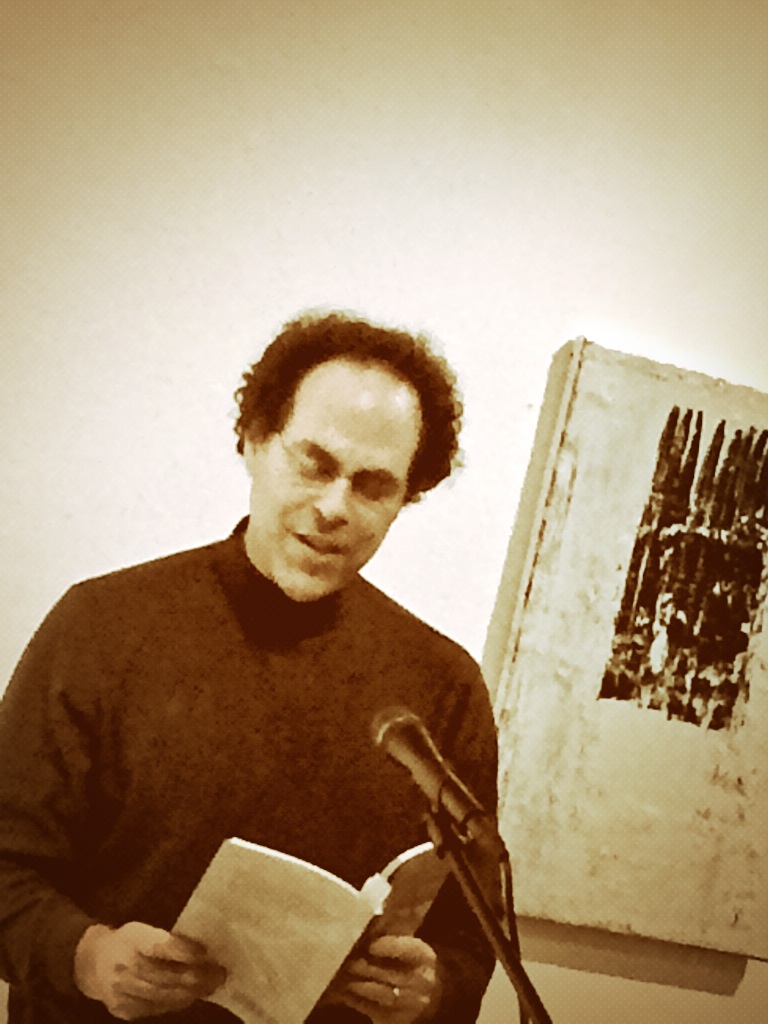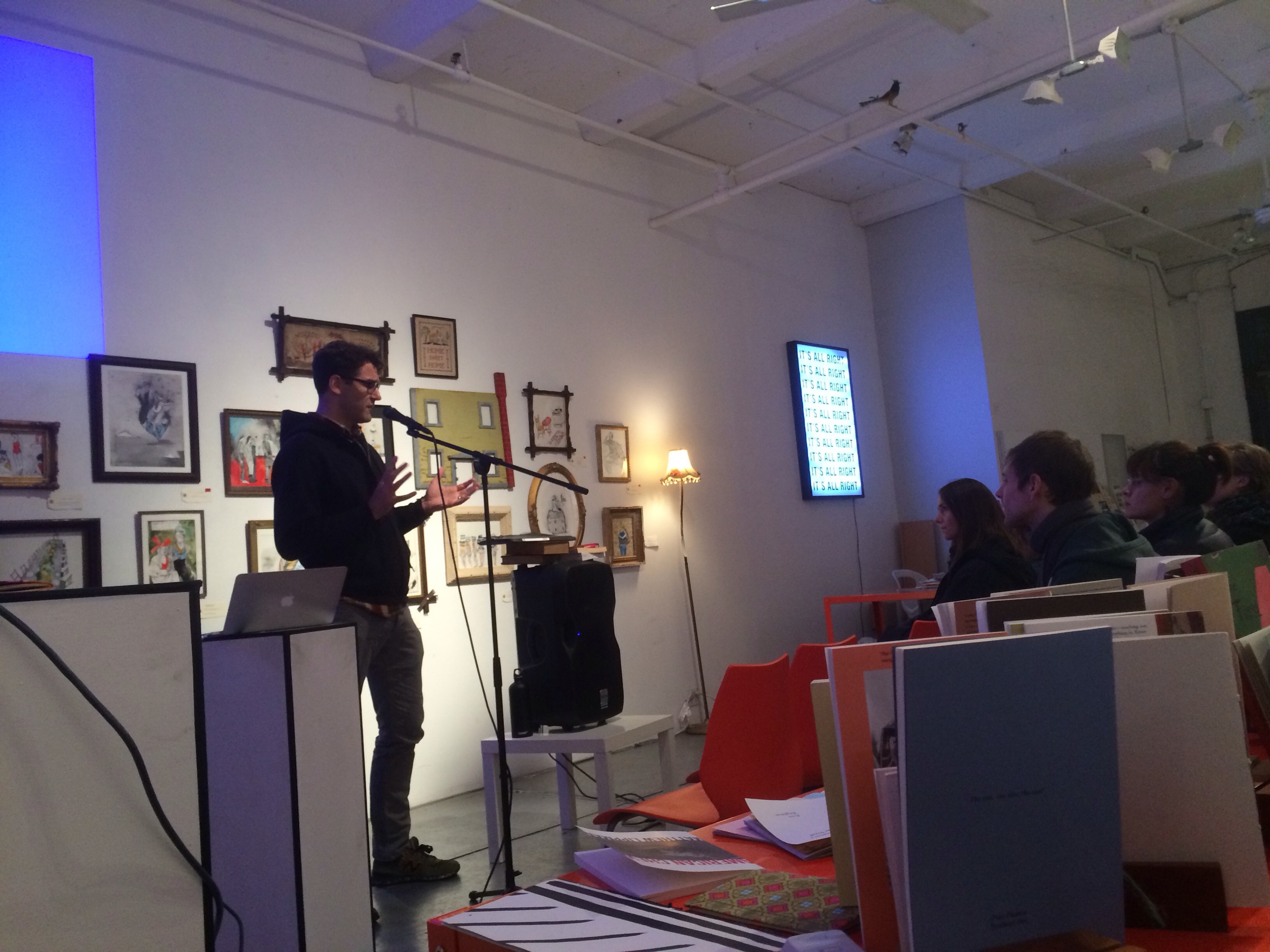Ekoko Omadeke, Jen Currin, Steven Karl and Rachel Levitsky
Instead of a standard introduction (and because they were in the middle of the poem-a-day April National Poetry Month challenge), Farrah and Jared collaborated on a new poem that they read to begin the reading. Here it is:
WE SUCKED EVERY LIVING ACTUAL BEING INTO OUR DREAMS
By Jared White and Farrah Field
According to Ekoko seven bikes were not enough
This youth is not enough
Youth stuff pith math booth
Climbing the stairs of the talk balloons
I raised my hand but no one called on me
I turned in my homework before it was assigned
The homework I assigned would not be finished
Recycling, sea foam, lime, thumb,
go, moon, mountains, mist of a wizard,
leave of and sleeve of
We wait backstage with Rachel and whisper
the Martians are coming
the Martians are here with us
in the room built by our grandmothers
The firefighter climbed the fire escape
and everyone stopped to watch
I punch out my hat
Steven said the record was skipping
Every word makes one face smile
When I touch your foot it feels like Virginia
Jen drives you to the airport I want to go to Mexico
I have a theory about the Indignados
In our love poem I stood behind an ampersand
In our love poem we shared water from a reusable container
In our love poem I lost my keys and had to borrow yours
Is this a poem or a novel
Is this an essay or a foreword
The entire class will all crouch down in the bathroom
We will listen to the stories and tell your folks to shove it
We will listen to the stories and tell your folks I’m sorry
We will listen to the stories and tell your folks you loved them
There are no words to express such condolences
We were eating in a restaurant that served only seeds
The art was entirely in the presentation
Eventually a tree grew with many bushes hiding behind it
We could never tell what kind of tree it was
a belladonna, a phantom limb, a coconut
The names carved on the trunk were middle names
ones on passports ones no one knew
I can’t respond to emails except in these poems
The accident of my birth is that it was no accident
Even silence makes a noise
When you are parents you will understand
We have something terrible in common
